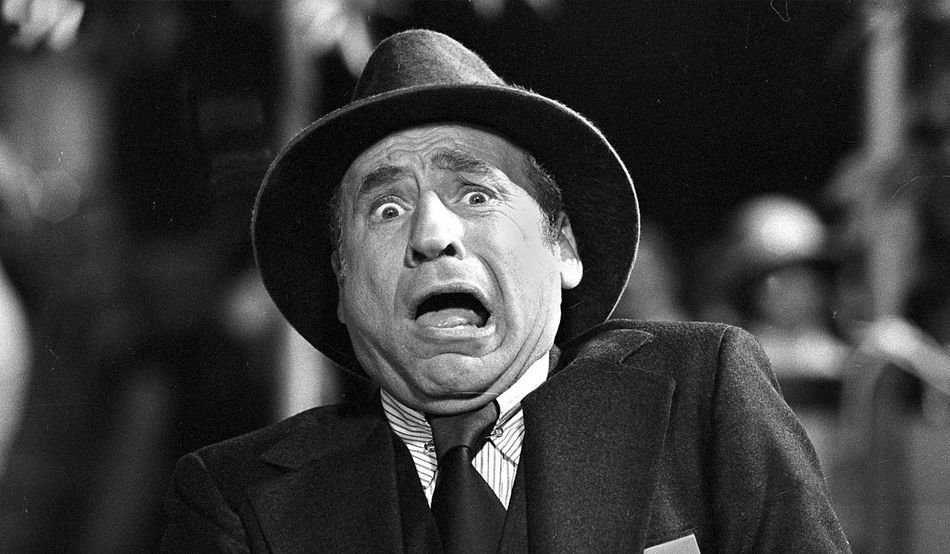Does anyone happen to know if there are any free sessions going at the Psycho-Neurotic Institute for the Very, Very Nervous? Can you get a discount for a block booking?
No need to Google—that institute exists only in the fevered imagination of Mel Brooks, who created it for his 1977 comedy thriller High Anxiety. It came to mind recently after another hard day of, well, of watching the news and seeing what is going on.
A new noun (new to me anyway) is being deployed to capture the spirit of these times: overwhelm. That feeling of it all being too much, of a sea of troubles constantly lapping over you… this is the overwhelm experience. Perhaps no-one is truly immune. The Kremlin suggested the other day that even President Trump might be a sufferer. His criticism of Vladimir Putin was “connected to an emotional overload of everyone involved”, a spokesman said.
It affects people of all ages. The American psychologist Jonathan Haidt has won a lot of attention with his latest book, The Anxious Generation, which looks particularly at younger people and their use of mobile phones. But perhaps each generation is currently anxious in its own way.
To be clear, I am not attempting to discuss serious mental illness and depression here, or offering any “quack” remedies. There is too much of that sort of thing about already, not least on TikTok, where apparently around half of all the mental health advice being proffered is dodgy.
And as Eva Wiseman pointed out recently in the Observer, a steady flow of mental health “awareness weeks” has not necessarily helped promote useful action.
I merely note and report that the relentlessness and intensity of unsettling news events continues, and that even the most robust and intellectually well-equipped are finding this hard hard (unless they are practising “news avoidance”, of course.)
Daniel Drezner, a professor of international politics at Tufts University in the US, wrote on his Substack last month: “Even after a brief respite the news starts dogpiling on one’s cerebral cortex faster than can be processed… this week has been a fucking horror show.”
The investment guru Barry Ritzholz told Paul Krugman in a recent interview that all the current talk of “uncertainty” was really a cover or euphemism for something much more serious.
“Randomness is such a big part of our lives,” he said, “the future is always uncertain. What has changed is your ability to lie to yourself that you know what’s going to happen. And so whenever I hear someone say ‘uncertainty’, to me it means that guy’s scared shitless. He can’t bullshit himself any more.”
Krugman tends to agree, and sees the current inhabitant of the White House as a primary cause of the disarray. “Trump is a virus”, he wrote, “and there won’t be a vaccine coming to our rescue… we’re stuck with this chaos agent for three years and three months.” Recent events—the Trump/Elon Musk bust-up, the deployment of the National Guard in Los Angeles and the feeble military birthday parade in Washington DC—bear Krugman’s forecfast out. Business leaders are bamboozled. A senior executive I spoke to recently described the constant on-again, off-again tariff announcements as the equivalent of another Covid moment for the business world.
How might we face up to these difficult times? I remember reading a hopeful analysis in a book from a few years ago called Just Enough Anxiety: The Hidden Driver of Business Success. It was written by an American psychologist called Robert Rosen and published in 2008. “It’s time to embrace change, uncertainty and anxiety as facts of life,” he wrote back then. “We can use our healthy anxiety as a positive force for growth.”
I am not sure that this advice will do in the summer of 2025. More practical and down-to-earth guidance (for the workplace at least) is on offer from Maria Amato, who is a senior client partner at the consulting firm Korn Ferry. “Managers should communicate what they know and focus on the implications for employees,” she says. “It’s important for managers to help employees to focus on the things that they can control.”
Facing up to reality is necessary. The management guru Jim Collins has long argued that we need to “confront the brutal facts” before we can make progress. Optimism may sometimes be mere wishful thinking, but grounded hope can be more substantial and more effective. “Hope doesn’t need a crystal ball, it needs a to-do list”, as the writer Eric Barker has said.
In her new book, Embracing Uncertainty, Margaret Heffernan urges us to think and respond like creative artists, who tend to cope better with not knowing what might come next. “These are the most disciplined, persistent and resilient people I’ve ever known,” she says.
“In an age of uncertainty, it is just this capacity to join imagination with pragmatism, to start before the question is obvious, to explore and to discover that our polycrisis demands… These are precisely the qualities that uncertainty demands of us now.”
We may not all be suffering with High Anxiety, but Mel Brooks, who will be 99 at the end of this month, is surely the guide we need right now. His time has come again. I close my eyes, and picture his cheery face about to break into a song. All together now:
“High Anxiety,
Whenever you’re near.
High Anxiety,
It’s you that I fear…
It’s very clear to me,
I’ve got to give in.
High Anxiety,
You win.”
